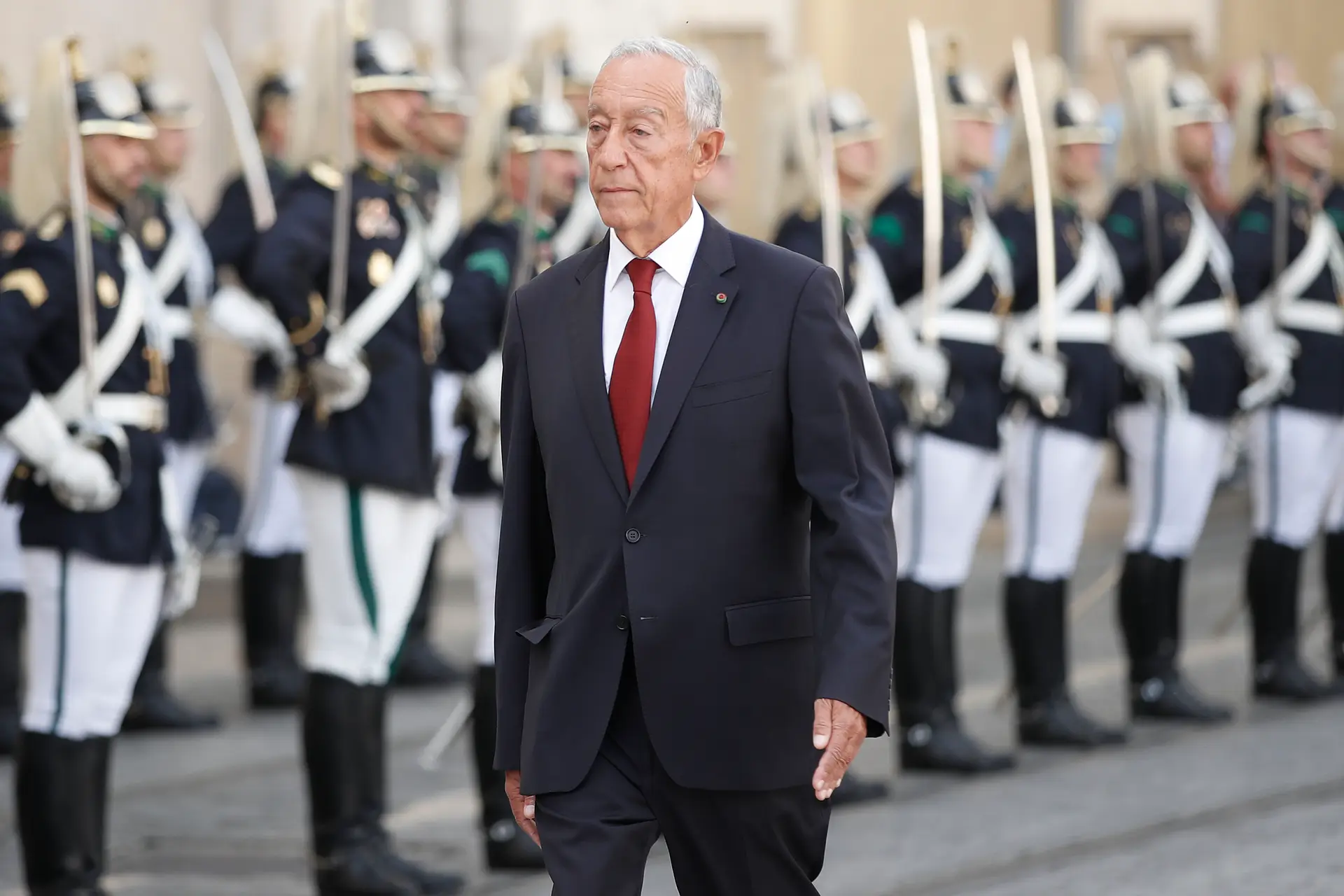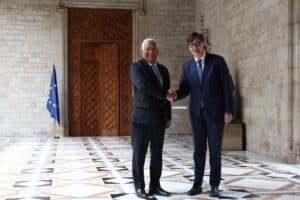António Costa’s brief “full of challenges”
At a moment when the political situation in Europe is in ‘turmoil’ (see below), Portugal’s prime minister Luís Montenegro will be receiving the previous incumbent of São Bento Palace – his predecessor António Costa, elected the new President of the European Council.
According to Lusa: “This will be the first meeting between Luís Montenegro and António Costa after the heads of state and government of the European Union chose the former Socialist prime minister last Thursday as president of the European Council for a term of two and a half years from December 1, 2024.
“António Costa is the first Portuguese and the first Socialist to head the European Council.
“Montenegro has never hidden his support for António Costa for that top European post, ever since he arrived in government at the beginning of April”, and Costa made a point of thanking the PM immediately after his position was officially confirmed.
But as Luís Montenegro has observed on his social media pages: “Europe faces great challenges and we will count on everyone to defend a more cohesive European Union, capable of building bridges so that states can give people the answers they need.”
Thus, news today that Hungary’s Viktor Orbán has launched the “Patriots of Europe” – designed to be a bloc of the far-right within the European Parliament – is the antithesis of the idea of a “more cohesive EU”.
Orbán’s initiative – involving an alliance with Herbert Kickl, the leader of Austria’s far-right Freedom Party, and Andrej Babiš, the former prime minister of Czechia – comes as exit polls in France are suggesting the extreme right is ‘in the lead’ in the two-stage legislative elections – while in Portugal, CHEGA has said it welcomes the Patriots of Europe, and wants to join…
CHEGA leader André Ventura said the group is “clearly against Ursula von der Leyen and António Costa”.
According to Ventura, the new European group is based on the idea that there cannot be uncontrolled immigration in Europe; Islamic immigration particularly needs to be controlled, as well as the fight against corruption and the defence of the middle class in fiscal terms.
In addition to a restrictive migration policy, the three founding parties are in favour of lifting the future European ban on combustion engine cars, as well as revising the so-called “new green deal” for the ecological transformation of the European economy.
All of this shows just how much work António Costa will have ahead of him, as he tries to bring Europe more together at the precise moment that Hungary is poised to take over the rotating Presidency of the Council of the European Union.




















